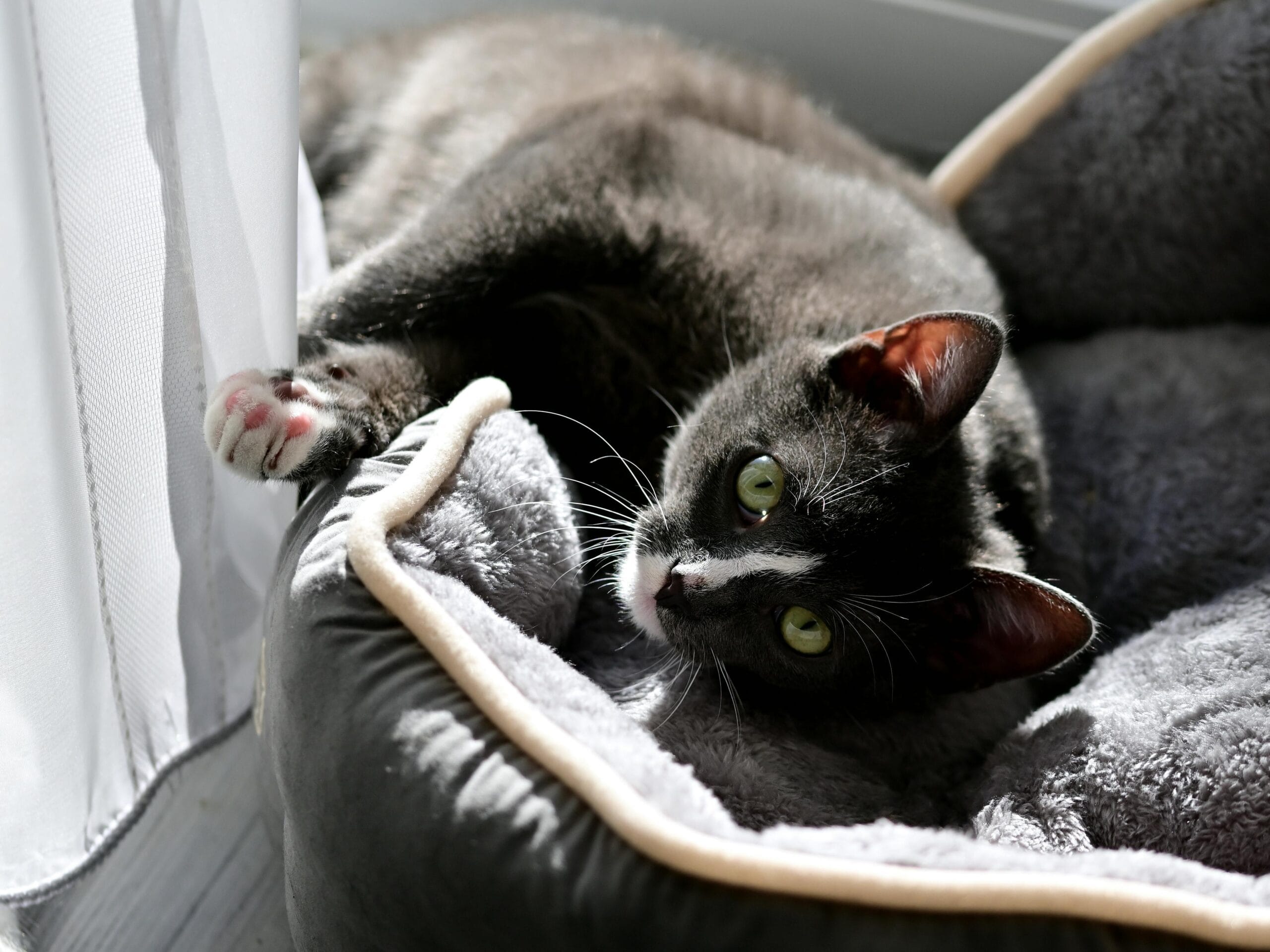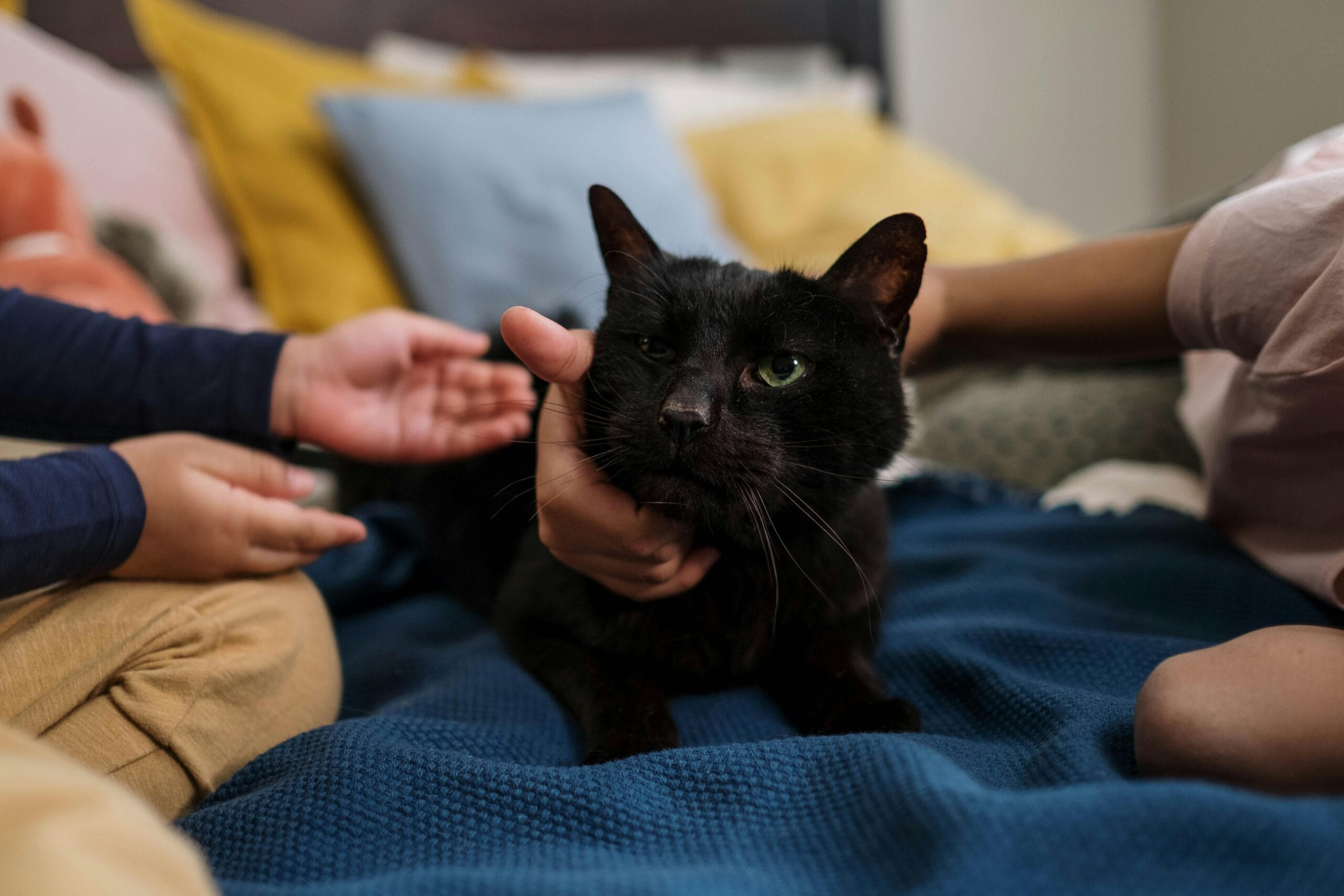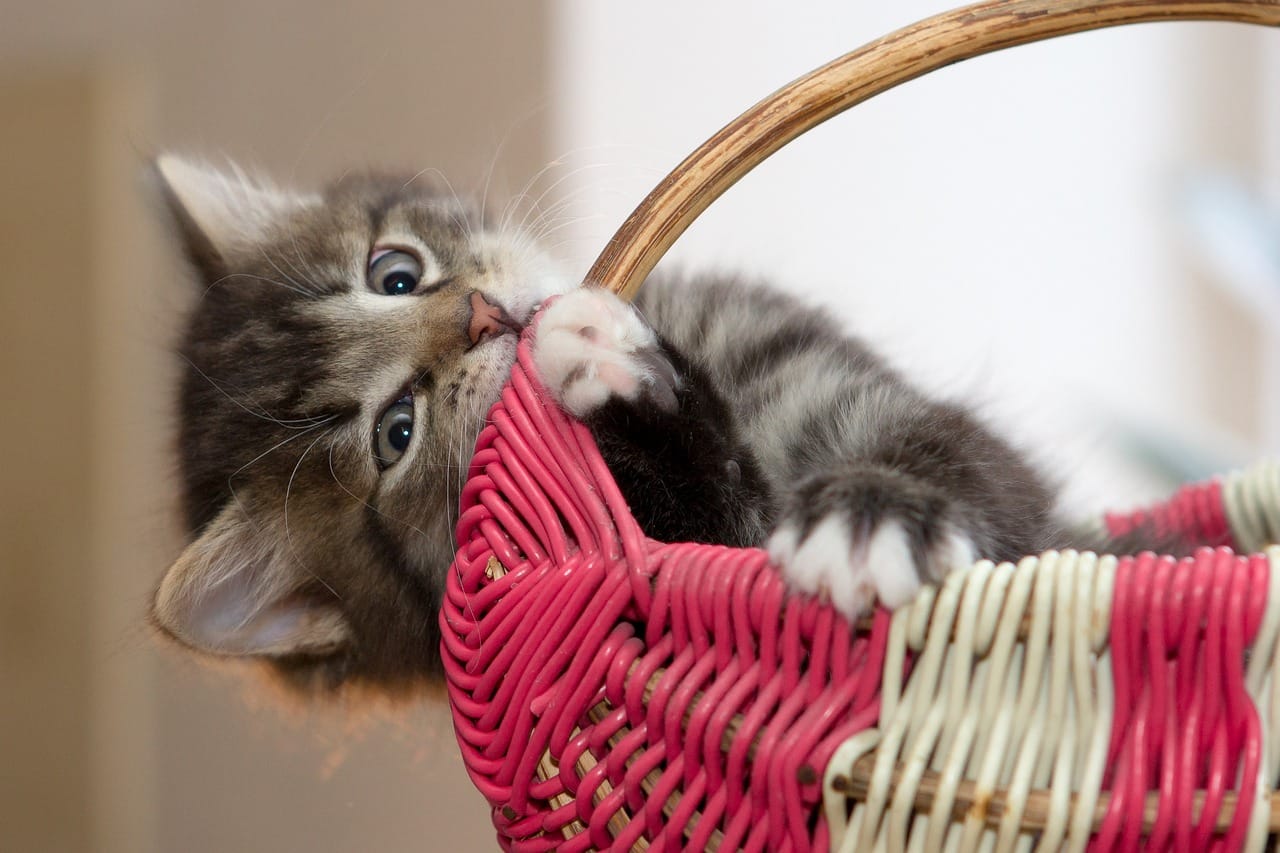When Do Kittens Become Cats ?

When do kittens become cats? Discover the fascinating journey of kitten to cat development, exploring key cat age stages & milestones. Learn when your furry friend transitions from playful kitten to independent adult cat!
When Do Kittens Become Cats? Understanding Kitten to Cat Development
The transition from a tiny, playful kitten to a graceful, independent cat is a fascinating journey. But when exactly does this transformation occur? There’s no single definitive answer to the question, “When do kittens become cats?” It’s a gradual process, more of a continuum than a sudden switch. This comprehensive guide explores the different cat age stages and kitten to cat development, helping you understand the milestones your feline friend will reach.
The Early Stages: Neonatal and Transitional Periods
A kitten’s life begins in a state of complete dependence. The neonatal period, lasting from birth to about two weeks, is characterized by intense vulnerability. Kittens are blind, deaf, and entirely reliant on their mother for warmth, nourishment, and hygiene. They spend most of their time sleeping and nursing.
The transitional period, from two to four weeks, sees significant development. Kittens begin to open their eyes and ears, gaining awareness of their surroundings. They start to explore their immediate environment and attempt to walk, although their coordination is still quite clumsy. Weaning begins, with the introduction of solid food alongside their mother’s milk. This phase is crucial for establishing their sensory perception and motor skills.
Socialization: The Foundation for a Well-Adjusted Cat
The period between four and eight weeks is critical for kitten to cat development. This is the crucial socialization period, during which kittens learn essential social skills. They interact with their littermates, mother, and other animals. This interaction teaches them bite inhibition, appropriate play behavior, and the nuances of feline communication. Proper socialization at this age is vital for their future behavior and adaptability. A kitten lacking sufficient interaction during this phase may struggle with social interactions later in life. A well-socialized kitten will have a better chance of being a relaxed and friendly cat.
Exposure to different sights, sounds, and textures during this time also helps kittens adapt to their future environments. This helps prevent fear and anxiety later on. Think about gently introducing them to a variety of stimuli – different types of floors, household sounds, different people.
The Juvenile Stage: Play and Exploration
From eight weeks to six months, kittens enter the juvenile stage. This is a period of rapid growth and intense playfulness. Their coordination improves significantly, and they become increasingly independent. Kittens begin to explore their surroundings with boundless energy, honing their hunting instincts through play. This is the stage where you’ll witness their most playful antics – pouncing, chasing, and batting at anything that moves.
This is also the ideal time for continued socialization and training. Positive reinforcement techniques can be very effective in shaping their behavior. Introduce them to new people and environments gradually. Early exposure to a cat carrier, for instance, can make vet visits less stressful later on.
Adolescence and Maturity: The Transition to Adulthood
The adolescent stage, from six months to one year, marks a significant shift in their behavior. Kittens start to display more independent and adult-like traits. They may become more selective about their interactions, showing preferences for certain people or toys. Some kittens might become more cautious or reserved during this period.
Sexual maturity usually arrives around six months, although it can vary depending on the breed and individual cat. This is often accompanied by behavioral changes, such as increased vocalization, spraying, or marking. Spaying or neutering your cat during this period can mitigate these unwanted behaviors and ensure their long-term health.
By one year of age, most cats have reached full physical maturity. However, their personality and behavior may continue to develop for several years. It is a common misconception that the moment a cat reaches its first birthday is when kittens become cats, but the truth is that personality development is an ongoing process. They’ll develop their individual quirks and preferences over time, becoming fully formed adult cats. The ASPCA offers a helpful resource for understanding the various life stages of cats.
Understanding the Different Cat Age Stages
To fully grasp when do kittens become cats, it’s essential to understand the various stages of a cat’s life. While the timelines are approximate, it’s a helpful framework for understanding their development:
- Neonatal (0-2 weeks): Completely dependent on mother’s milk, blind and deaf.
- Transitional (2-4 weeks): Eyes and ears open, starting to walk and explore, weaning begins.
- Socialization (4-8 weeks): Critical period for social development and learning essential skills.
- Juvenile (8 weeks-6 months): Rapid growth, intense playfulness, development of hunting instincts.
- Adolescence (6-12 months): More independent, sexual maturity, potential behavioral changes.
- Adulthood (1-7 years): Full physical maturity, continued personality development.
- Senior (7+ years): Age-related changes may begin to appear.
It’s important to note that these age ranges are approximate guidelines. Breed, genetics, and individual differences can influence the pace of development. Some cats mature faster than others. The focus should be on observing your cat’s individual progression and adapting your care to meet their changing needs at each stage.
Physical and Behavioral Changes: Indicators of Maturation
Observing the physical and behavioral changes your kitten undergoes is crucial in understanding kitten to cat development. Here are some key indicators:
- Improved Coordination and Motor Skills: As they grow, kittens become more agile and graceful in their movements.
- Increased Independence: They spend less time nursing and more time exploring and playing independently.
- Changes in Play Style: Play becomes more sophisticated, involving stalking, pouncing, and more complex interactions.
- Development of Hunting Instincts: Kittens demonstrate a natural inclination to hunt, chasing toys and other small objects.
- Changes in Sleep Patterns: Sleep patterns will shift as they grow. The need for frequent naps diminishes as they age.
- Changes in Appetite: Their appetite and eating habits will also change as they transition from kitten food to adult cat food.
These physical and behavioral markers combined will paint a more accurate picture of where your cat stands in its development. It’s a gradual transformation, not a sudden shift. The transition from kittenhood to adulthood is not a single event but a series of evolving changes. Remember to consult with your veterinarian if you have any concerns about your cat’s development.
For more in-depth information on feline health and behavior, I highly recommend exploring the resources available at Vets Now. They offer expert advice on a wide range of topics.
Providing the Best Care Throughout Development
Regardless of when exactly kittens become cats, providing appropriate care throughout their development is crucial for their well-being. This includes a balanced diet, regular veterinary checkups, and plenty of opportunities for play and socialization. A stimulating environment, providing enrichment through toys, scratching posts, and climbing structures, contributes significantly to a cat’s happiness and prevents behavioral problems.
Remember, every cat is unique. While the general guidelines on cat age stages provide a useful framework, your cat’s individual personality and development should guide your care. Observe your cat’s behavior, adjust your approach as needed, and enjoy the fascinating journey from kitten to cat.
Understanding these stages aids in responsible pet ownership and helps create a harmonious relationship with your beloved feline companion.
Call to Action
Have you noticed specific milestones in your cat’s kitten to cat development? Share your experiences and observations in the comments below! Let’s build a community of cat lovers who can learn from each other’s experiences with their feline friends throughout the different cat age stages and discuss when kittens become cats. Your insights on the transition from kitten to cat could be incredibly helpful to other readers! Let’s discuss!

10 FAQs: When Do Kittens Become Cats?
1. When do kittens become cats? Is there a specific age?
There’s no single magic day a kitten becomes a cat. It’s a gradual process of kitten to cat development, spanning several months. While they’re considered adult cats by about one year old, their personalities and maturity continue to develop for several years after. The stages of cat age stages are loosely defined.
2. At what age are kittens fully weaned?
Kittens are typically weaned from their mother’s milk between 4 and 6 weeks old, though some may continue to nurse for a bit longer. This is a key part of their kitten to cat development.
3. When do kittens reach sexual maturity?
Kittens reach sexual maturity (ability to reproduce) as early as 4-6 months, although spaying or neutering is recommended before then to prevent unwanted litters. This is a crucial factor in understanding cat age stages.
4. When do kittens’ eyes and ears fully open?
A kitten’s eyes usually open between 7 and 14 days old, and their ears open around the same time. This is an early milestone in their kitten to cat development.
5. When can kittens start eating solid food?
Kittens can start experimenting with solid food around 3-4 weeks old, gradually transitioning away from mother’s milk. This shift is important in their kitten to cat development.
6. When do kittens’ teeth fully develop?
A kitten’s baby teeth erupt at around 2-3 weeks old, and their adult teeth usually come in between 4 and 6 months, completing the transition of their cat age stages.
7. When do kittens become fully independent from their mother?
Kittens usually become more independent from their mother around 8-12 weeks old, but they may still seek comfort and affection. This is a significant point in their kitten to cat development.
8. What are the key developmental stages from kitten to cat?
The stages of cat age stages are broadly categorized as: neonatal (0-2 weeks), transition (2-4 weeks), socialization (4-14 weeks), juvenile (14 weeks-6 months), adolescent (6-12 months), and adult (1 year and older). Each stage involves significant changes in their kitten to cat development.
9. When is a cat considered a senior cat?
Cats are generally considered senior cats around the age of 7 or older, although this can vary depending on breed and health. This is a later stage in their cat age stages.
10. How can I tell if my kitten’s development is on track?
Regular veterinary checkups are crucial to monitor your kitten’s development and address any concerns. Monitoring their weight, milestones (like weaning and eye opening), and overall health will help you understand their progress through the various cat age stages and ensure healthy kitten to cat development.

When Do Kittens Become Cats? A Guide to Growth and Development
The transition from kitten to cat is gradual, not a sudden event. While there’s no single magic day, several key milestones mark this progression. Understanding these helps ensure your feline friend thrives.
Physical Development: Key Indicators
Weaning (4-6 weeks): Kittens begin to wean from their mother’s milk around this age. This is a crucial time for transitioning to solid food. Consult your vet for guidance on appropriate kitten food. Insufficient nutrition at this stage can impact lifelong health.
Solid Food (3-4 weeks): Introduce high-quality kitten food gradually, alongside mother’s milk. Ensure the food is specifically formulated for their nutritional needs.
Adult Teeth (4-6 months): As adult teeth emerge, expect some teething behaviors like chewing. Provide appropriate chew toys to protect your furniture and their gums.
Sexual Maturity (5-9 months): This is when kittens reach sexual maturity. Spaying or neutering is crucial to prevent unwanted pregnancies and certain health problems. Discuss this with your vet to determine the optimal time.
Full Size (1-2 years): Most cats reach their full adult size within the first year, although some larger breeds might take a bit longer.
Behavioral Changes: What to Expect
Playfulness (8-12 weeks): Kittens are incredibly playful during their early months. Interactive playtime is essential for their physical and mental stimulation.
Independence (6-12 months): As they mature, kittens become more independent and less reliant on their mother or human companions for constant attention.
Adult Personality (1-2 years): Their personality begins to solidify. You’ll notice consistent behavior patterns and preferences.
Health Considerations
Vaccinations: Kittens require a series of vaccinations to protect them from various diseases. Follow your vet’s recommended schedule.
Parasite Prevention: Regular flea, tick, and worm prevention is vital throughout their lives, especially during kittenhood.
Veterinary Checkups: Regular checkups are essential for early detection and prevention of health issues.
Conclusion
The transition from kitten to cat is a gradual process spanning months. By understanding the key physical and behavioral milestones, and providing appropriate care, you can ensure your feline friend grows into a healthy and happy adult cat. Remember to consult with your veterinarian for personalized advice and guidance based on your cat’s specific breed and needs.
Keywords: kitten, cat, development, growth, kitten to cat, cat health, kitten care, cat stages, weaning, vaccinations, spaying, neutering
2 thoughts on “When Do Kittens Become Cats ?”